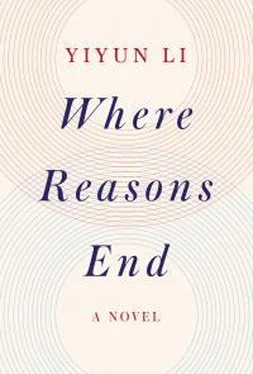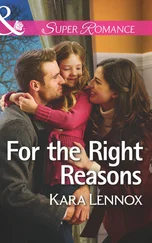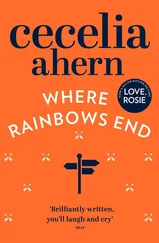Oh, you and I write about orphans often, I said.
And now you’ve made one more orphan out of a tree.
Orphan, widow, widower, I thought, but what do you call a parent who’s lost a child, a sibling who’s lost a sibling, a friend who’s lost a friend?
I told you nouns are limited, Nikolai said.
Words are, I said.
Both Nikolai and his little brother had strongly opposed buying live trees, cut down to decorate a human holiday for a few weeks. We had kept an artificial tree, brought out every year along with ornaments we had begun to accumulate since Nikolai’s first Christmas. But the tree had not moved with us, and we could not, I thought, go out and buy another one. The life of an artificial tree is devastatingly long.
Isn’t that the point, to have something lasting, Nikolai said, instead of killing a tree each year?
It’s a tiny tree, I said. More like a plant in a pot. Barely big enough for Alice after she shrinks herself.
A tiny tree is still a tree, he said.
We can keep it growing after the holiday, I said. It won’t get dumped on the curb.
Whatever, he said.
Oh, judgmental as ever, I protested in my thought. And unforgiving. And unyielding.
Yieldingly and forgivingly I inquire, he said, Did you decorate it?
Thank you, I said. We did.
The day before, I had chosen five ornaments, the least weighty ones in our possession: a house, a snowman, a mitten, a penguin, two dog brothers sharing a stocking. The thin, supple branches held up well.
And presents, any little boxes under the little tree?
Only if they’re the size of matchboxes, I said, but we can’t put any presents in them. The moment I said it, a memory that was long gone resurfaced. Before I had learned to read, my father had saved used-up matchboxes for me. They had been versatile. I connected them into trains because I had never traveled on a train, I arranged them into sofas because I had seen sofas only in pictures, and I made fortresses out of them, following the war epics I had listened to on the wireless.
So, Nikolai said, they were like Legos?
Legos be damned! I said. The matchboxes were priceless.
Wobbly statement, he said. They were priceless only because your memory makes them so.
Okay. You’re right.
Also, I don’t like the word priceless.
It’s an adjective, I said. I didn’t want to say that I had learned the word from the television commercials for Mastercard when I had first arrived in America.
I know, I know, Nikolai said. But it’s a derivative of a revolting noun. Like marrying a toad for unseemly gain. It comes at a price.
Everything comes at a price, can we not say that? I said. The flowers on the table, the photos in the frames, the stuffed penguins—forty-one of them—cuddled together, a livable life, an inevitable death, sorrow and stoicism, fear and despair. A self that, too close to one, does not stand self-injuring scrutiny; a self, too far removed, becomes a phantom limb.
Almost everything but one, he said. Time does not come at a price.
Sure it does.
You don’t have to do anything for the minutes and hours and days to arrive, he said. You, meaning anyone living. You can’t even stop time from coming at you.
It must go at a price then? I asked. Well spent, I thought. Misspent. If we don’t have to earn our time, how easily we squander it.
Who’s the judgmental one here? Nikolai said. Time you spend reading is as equally squandered as someone else’s time spent playing Angry Birds.
In kindergarten he had once said that he wouldn’t mind having a mother like his friend’s mother, who sat at the kitchen counter playing Angry Birds.
And has it ever occurred to you that well-spent time is overrated? he asked. Well spent according to whom?
My time spent according to my own standard, I said.
How do you know your standard is not problematic?
I don’t, I said. In fact, I think it may very well be problematic.
In what way?
I thought for a moment. When I was your age…
The worst way for a parent to start a topic, he said. As though people at the same age by default belong to the same species.
We do belong to the same species.
Don’t be so literary, he said.
When I was sixteen, I said, I copied a saying from a Ming Dynasty book in my diary. The translation from Chinese goes like this, approximately: If not for the frivolous, how does one manage to reach the other shore of life?
In other words, if not for my famous frosting, how was I able to make a hundred and four dollars at the bake sale?
I laughed. His frosting had been an ongoing disagreement between us. The amount of sugar he had used had often made me cringe.
I made a resolution then that I should follow the advice from the old book, I said.
How did you lose your taste for the frivolous?
I didn’t. What I thought of as frivolous turned out to be life, I said. My life.
Which is?
Reading.
Oh, that, Nikolai said.
In my time…I said. On second thought, I stopped.
I hope you’re not going to speak like many parents. In our time, as though time bothers to make itself different for each generation.
Touché, I said. A purposeful life, when I grew up, had no place for poetry or fiction or philosophy or daydreams. Perhaps it’s still the case. So you’re right. How can I say my time is better spent reading than playing Angry Birds?
At least you’re better at reading than at playing games, Nikolai said. And you’re lucky.
How so?
Things you’re good at may not treat you well in return, he said.
They didn’t treat you well, did they, I said. Nikolai had been good at many things.
Being good is different from being perfect, he said.
Over and again we came to that adjective: perfect. Was there not one way out of its trap? Was there not anything—even something frivolous—that would have helped him reach the other shore safely?
I’m already at the other shore, he said.
People may look at it differently, I said.
They think of me as a shipwreck, don’t they?
I did not speak.
They can think what they want, Nikolai said. People are afraid of death, people are afraid of the dead, and people are afraid of unusual decisions.
I wonder if fear is what keeps people going in life, I said.
Most people would say hope is a more suitable noun there, he said.
Who can tell the difference between hope and fear?
That’s a good, muddleheaded question.
Oh, I remember another toy from my childhood, I said.
How nostalgic mothers can be, Nikolai said.
Though I didn’t own it, I said. It was a spinning top that the big kids used to whip around in the courtyard. But even if you don’t know what it looks like…
I do, Mommy. I’m not stupid. And I know you’re going to use it as a bad analogy. You’re going to say: We are the spinning tops, and fear whips us, and hope whips us, so fear and hope must be the same thing.
I thought for a moment. No, that’s not what I meant to say.
Or you’re going to say, Hope is the spinning top and fear whips it.
No, I said.
Fear is the spinning top and hope whips it.
No!
Then you’re going to say the most refreshing thing—Fate, O Fate, O Fate, it’s you who’s whipping us! Nikolai said.
Stop putting words in my mouth! It doesn’t matter who or what is whipping us, I said. Whatever it is, it’s not doing that all the time. So my question is, What keeps us going then, fear or hope?
Scientifically speaking, it’s rotational inertia, he said.
So hope is a kind of inertia? Fear too? I said.
Oh Mommy, you’re getting so muddleheaded.
I’m muddleheaded, I thought, because I could go on thinking but would not reach any clarity: Which, between hope and fear, had made life unlivable for him?
Читать дальше












